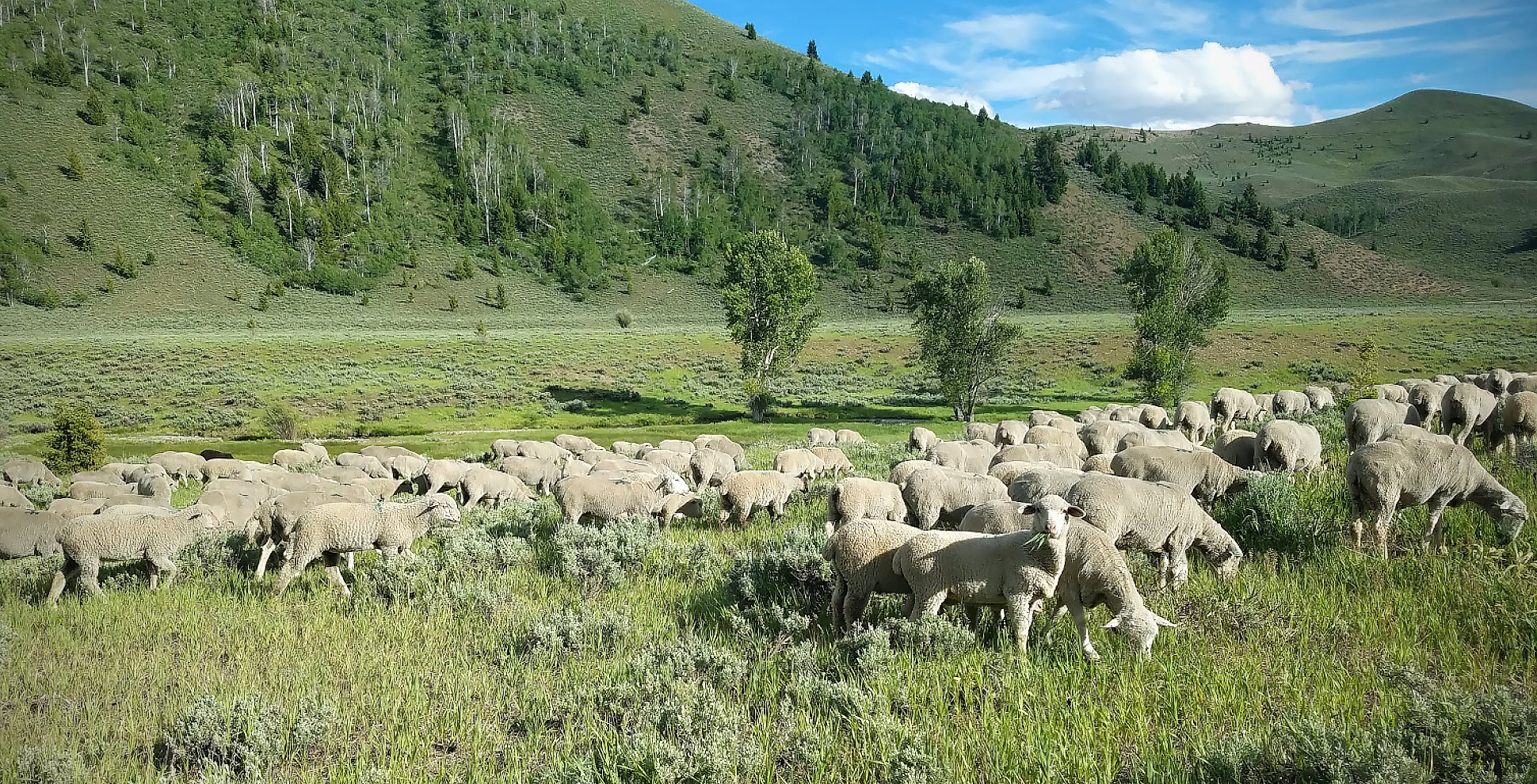
The project
Cheatgrass (Bromus tectorum) invasion increases wildfire risk and negatively impacts sagebrush ecosystems and rangeland-based agricultural production in the western United States. In sagebrush ecosystems, diverse native plant communities tend to be more resistant to invasion and resilient to disturbances, like wildfire. Grazing has been suggested as a tool to combat cheatgrass and thus promote more resilient vegetation communities. However, most research on targeted grazing of cheatgrass has been done with cattle. Studies on targeted grazing of sheep on cheatgrass remain sparse, despite interest from stakeholders. This project is answering the question of whether sheep can be used to reduce cheatgrass and wildfire risk, while also examining the economic costs and benefits of this practice.
In 2022, our transdisciplinary team established a sheep targeted grazing experiment at a management-relevant scale on the Sawtooth National Forest in Idaho to examine vegetation responses and belowground processes affected by grazing. Grazing treatments are comparing dormant-season grazing in spring and fall, when cheatgrass is growing but most perennial species are not, to “traditional” summer grazing. In addition to assessing treatment effects on the composition of aboveground vegetation and fuel loads, we are examining impacts on soil processes to enhance understanding of the ecological mechanisms underpinning our results. Fire behavior models and economic models will estimate the financial and societal costs and benefits of adopting sheep targeted grazing practices.
If you have any questions about the study, please contact Dr. Kelly Hopping at kellyhopping@boisestate.edu.
Team
- Dr. Kelly Hopping, Boise State University
- Renee Kehler, U.S. Forest Service
- Dr. Marie-Anne de Graaff, Boise State University
- Dr. April Hulet, Brigham Young University
- Dr. Sergio Arispe, Oregon State University
- Dr. Kerry Byrne, Cal Poly Humboldt
- Dr. Laura Villegas Ortiz
- Madelyn Sorrentino, Boise State University
- Kloe Walter, Boise State University
- Kowitz Sheep Company
- Plateau Farms
- Flat Top Sheep Company
Press
- Cheatgrass-Eating Sheep. Western SARE News. September 6, 2022.
- Study underway to test sheep grazing’s impact on invasive cheatgrass. Idaho Mountain Express. March 10, 2023.
- Targeted Grazing: Land management to protect ecosystems (September 2024, pg. 66-69)
- Could sheep help reduce wildfires in Idaho? Boise State Public Radio News. December 18, 2024.
- Targeted grazing study tracks cheatgrass consumption by sheep in the spring and fall. Life on the Range. January 2025.
- Targeted grazing research with sheep — Kelly Hopping and Riley Kowitz. Art of Range podcast. Episode 148. January 2025.
- Targeted grazing study utilizing sheep aims to help prevent wildfires. KTVB7 Inside Ag. January 28, 2025.
Funding
This project is supported by the Western Sustainable Agriculture Research and Education program under award numbers SW22-038 and SW23-944.